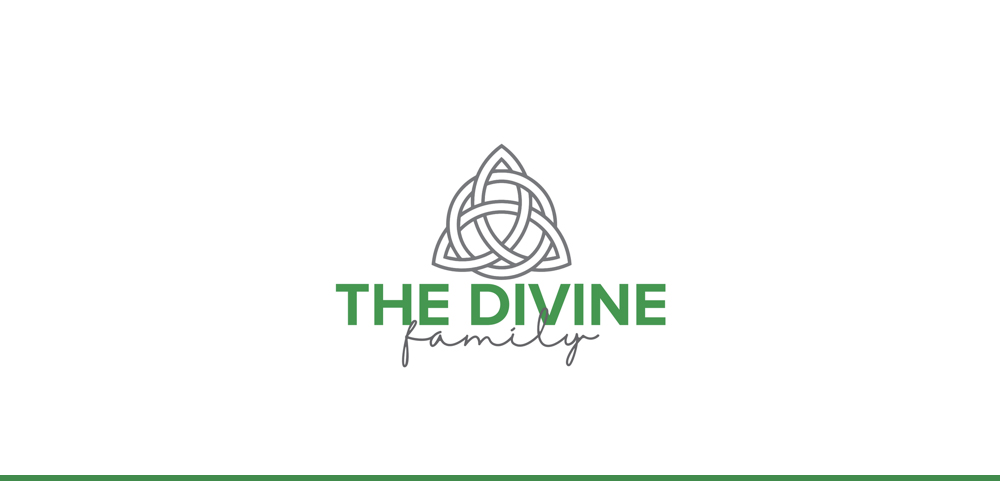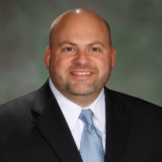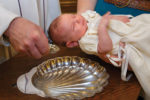 |
The Father, the Son, and the Holy Spirit are united in planning and carrying out our salvation.
Joel J. Gawrisch
Marriage requires commitment and unity. Once husband and wife begin their life together, one critical decision must be made: Will they have children? Both have to be all in on that decision. Of course, there are often “surprises” when children come, but even then, husband and wife must be all in as they become father and mother. Children create changes, and unity is required to handle the blessings and challenges of parenting.
Perhaps we don’t often think of the Trinity—Father, Son, and Holy Spirit—as a family, but the idea of Father and Son clearly suggests a family. Certainly, the idea that they are all in when it comes to our salvation is clear from the Scriptures.
Focus on the Trinity
For many, the idea that God is three persons and yet only one God is as clear as mud. People often derisively question, “How can I believe in a God that I can’t understand?” In response, volumes have been written over the centuries to explain the Holy Trinity and to combat heresy. Many of the passages used in these works to support the teaching of the Holy Trinity can be found in the lectionary readings for these early weeks between Christmas and Easter. Most strikingly, in the accounts of Jesus’ baptism (Matthew 3:13-17; Mark 1:9-11; Luke 3:21,22), God reveals the mystery of his persons and being even as he identifies his mission of eternal salvation for those lost in the darkness of sin.
But it is important to note that neither in the account of Jesus’ baptism, nor in any of the other readings for Epiphany in January, nor in any of the proof passages cited by theologians in a myriad of treatises over the centuries is there an attempt by God to explain how the Trinity works. In fact, much to the consternation of the defenders of the trinitarian doctrine, the word Trinity is never used anywhere in all of Scripture. Nowhere does our triune God explain or expect us to understand the Trinity. Rather, the Trinity acts on our behalf regardless of our understanding and invites us to receive him by grace through faith, a gift in and of itself from him.
At the baptism of Jesus, God the Father, God the Son, and God the Holy Spirit were all present, not to prove the Trinity or explain it but to display the Trinity’s whole family and its all-in commitment to the Son’s mission to save our human race. The Father spoke, “This is my Son, whom I love; with him I am well pleased.” The Spirit descended like a dove and alighted on Jesus.
Scripture teaches us the Trinity
As we make our way through these weeks of Christmas and Epiphany, we are blessed with the glimpses of our Savior’s mission to redeem us. In the months ahead, we will hear of the specific details of his death and resurrection. The readings take us from the manger, to the cross, and then to the empty tomb. Listen carefully. His mission and its fulfillment are told to us through the prophecies of Isaiah, the narratives of the gospels, and the words of the apostles. But also woven into the fabric of these Scriptures is the all-in commitment of the divine family, the Holy Trinity. The persons of God the Father and God the Holy Spirit are distinctly supportive of God the Son in his mission and yet are, at the same time, one in being throughout, working in complete divine unity to redeem the world.
This is what this January’s worship is about. The readings assure us that God is not just somewhat okay with the mission of Jesus. More than sending the Son on an errand and waiting for few-and-far-between updates, Father and Spirit are both active as the Son shines the light of salvation into a sin-darkened world, welcoming those lost in darkness into the light of the Trinity’s family of grace. God is all in. He loves humanity completely and fully, and his plan to save us is certain in the mind and action of the almighty God—the Trinity.
The Scriptures assert the certainty of God’s plan. The Old Testament readings announce the light of the gospel. They prophesy what God intended from the beginning: saving sinful humanity. Even before Jesus was born of the virgin to redeem us, God was all in on his plan to save us. Then when Jesus was born in Bethlehem, God also made sure that we knew that this Son of God came to carry out the plan. And God supported his Son not only with words at his baptism but also by showing that through his miracles he had a mission of importance for all—a mission backed by the power of God. The Son has God’s approval. He was not sent here on his own mission but for the mission of the Trinity.
Explaining the Trinity is beyond us. All we can do is learn what God tells us in the Scriptures. When we are confronted with doubts and questions, listen to what God says and “lean not on your own understanding” (Proverbs 3:5). The bottom line is that God loves us. He loves us completely, and he has loved us from eternity.
This is what makes Christianity unique among the world’s religions: the Holy Trinity, the divine family, all in, all for you. For “salvation,” Islam demands adherence to the Five Pillars. Hinduism requires enough good karma. Buddhism necessitates the Eightfold Path. Even Judaism has denied reliance on the promised Messiah for reliance on personal atonement through moral rectitude. None of these religions leads to salvation; in our imperfection, they can only lead to failure and despair. They are man-made religions that sound good to human reason but can only result in death, both temporal and eternal.
The “Trinity in unity” and the “unity in Trinity” demand perfection, yet God the Father provides it, God the Son’s innocent life and sacrificial death pay for it, and God the Holy Spirit empowers a life of faith striving for it.
This is the Holy Trinity at work, the divine family all in, all for you. God with us. God for us. Father, Son, and Holy Spirit.
Extra content
For further study
The Athanasian Creed, written to defend the doctrine of the Holy Trinity, was named for Athanasius of Alexandria, a fourth-century defender of the Christian faith in general and of the full deity of Jesus in particular. A portion of the creed reads:
We worship one God in three persons and three persons in one God, with- out mixing the persons or dividing the divine being. . . . The Father is almighty, the Son is almighty, the Holy Spirit is almighty; yet they are not three who are almighty, but there is one who is almighty. So the Father is God, the Son is God, the Holy Spirit is God; yet they are not three Gods, but one God.
Take time to read the entire creed. Find it on p. 132 of Christian Worship.
Learn more about the Trinity:
- Grace Abounds, D. Deutschlander, pp. 95-124
- God So Loved the World, L. Lange, pp. 121-145
- People’s Bible Teachings: Trinity, R. Balge
These books are available from Northwestern Publishing House, nph.net, 800-662-6022.
Author: Joel Gawrisch
Volume 107, Number 01
Issue: January 2020







